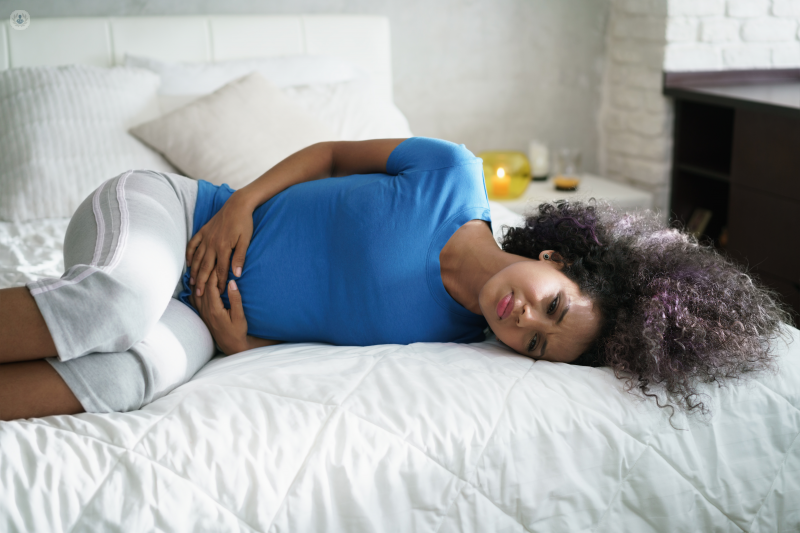


What is period pain?
Period pain is a normal part of the menstrual cycle and most women experience it at some point in their lives. It is felt as painful muscle cramps in the lower abdomen that can sometimes spread to the back and thighs.
Period pain usually starts on the first day of the period, although many women experience pain a few days before. It normally lasts between 48 and 72 hours, but this can vary.
The cramps can vary in intensity with each monthly period. Sometimes the pain can come in intense spasms, while other times it can be dull and constant. Many women experience less pain with age and after having children.

What are the symptoms of period pain?
The most common symptoms include:
Sometimes women experience:
How is period pain diagnosed?
Normally period pain is light to intense muscle cramps every month around the time of the period. However, if periods become irregular, heavier and other symptoms present, like foul-smelling vaginal discharge and bleeding between periods, your GP may want to carry out a pelvic exam to rule out other conditions.
What causes period pain?
Period pain occurs when the muscular walls of the womb or uterus contract. When the wall of the uterus contracts, it compresses the blood vessels in the lining of the womb and this cuts off the oxygen and blood supply to the womb. When the tissues in the womb have no oxygen, they release chemicals that cause pain and inflammation. These chemicals are called prostaglandins.
The contractions occur to allow the lining of the womb to shed, which causes monthly bleeding.
Period pain is a normal part of the menstrual cycle, however, sometimes the pain can be accompanied by an underlying medical condition. These can include:
If period pain is caused by an underlying medical condition, the following symptoms may be experienced:
If you experience any of the above symptoms, it’s important that you make an appointment with your GP.
What are the best ways to treat period pain?
Painkillers such as ibuprofen and aspirin and paracetamol can help. However consult your doctor if you have stomach, kidney or liver problems. Aspirin should not be given to anyone under the age of 16. If cramps are very bad, your doctor may prescribe stronger painkillers.
A combined contraceptive pill may be prescribed, as this thins the lining of the womb, leading to fewer contractions and lighter periods. Contraceptive injections or implants are also an option.
Natural measures that help to relieve the pain:
If period pain is caused by an underlying medical condition, then the treatment will depend on the condition. Fibroids may require surgery, or a bacterial infection may require antibiotics.
If your periods are heavier or more painful than normal or you experience symptoms of an underlying medical condition, as mentioned previously, consult your doctor for correct treatment.